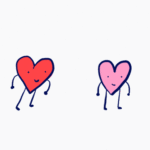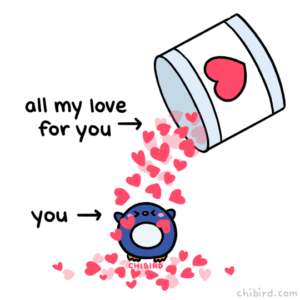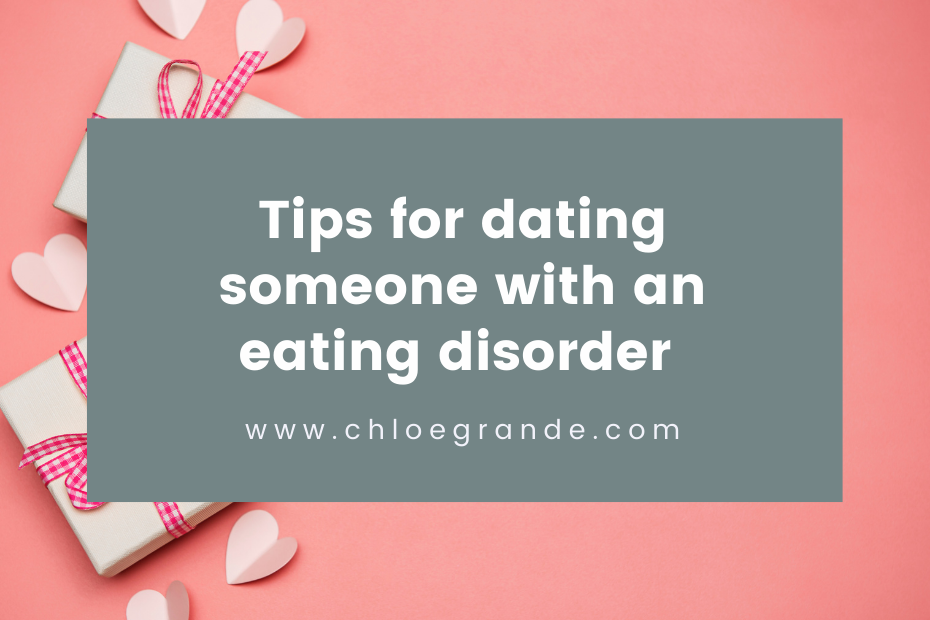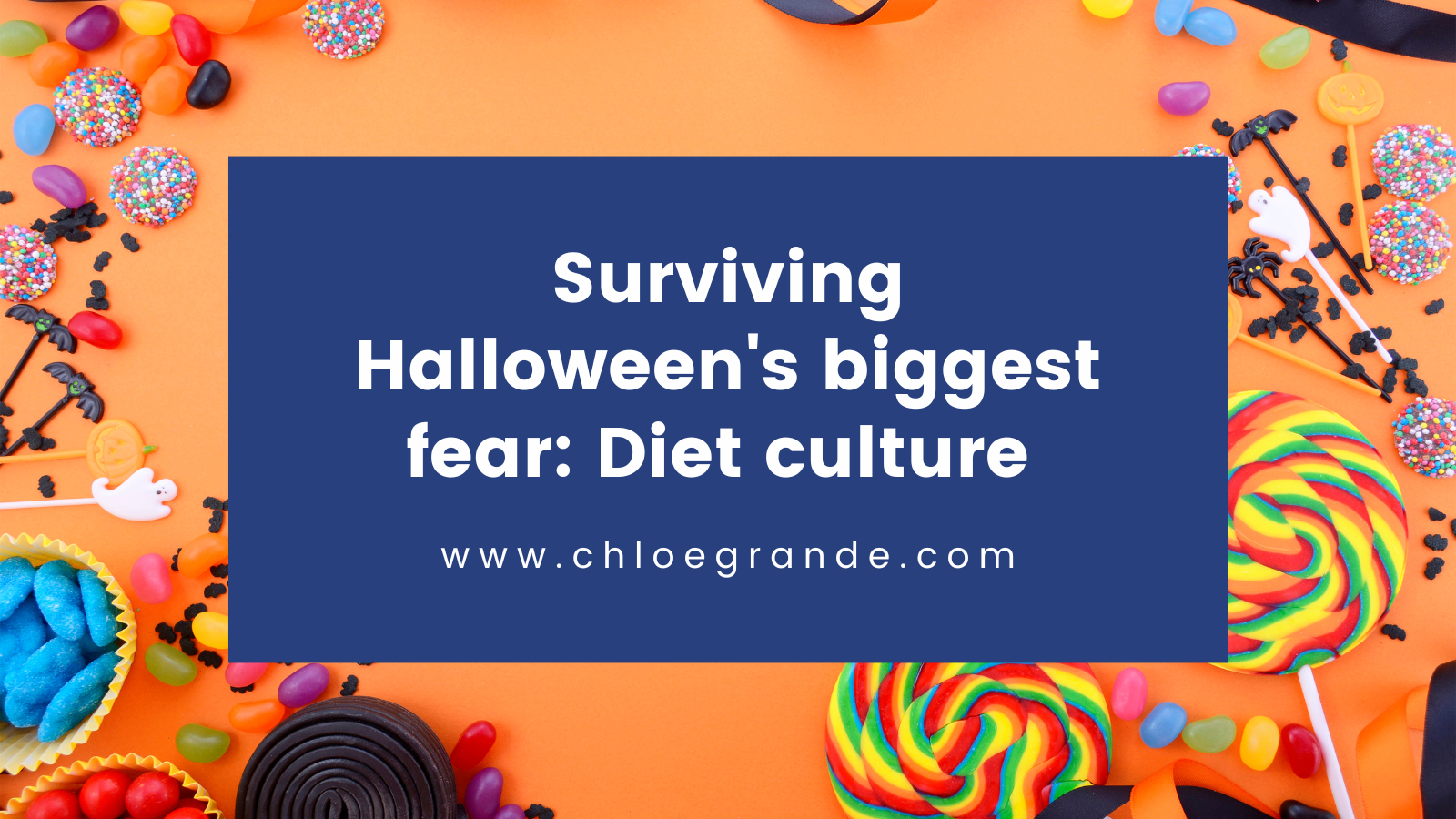With Valentine’s Day coming up, love is definitely in the air. For people with eating disorders though, dating and falling in love are some of the last things on their minds.
When I was at my sickest with my eating disorder, I didn’t have the mental capacity to even think about dating someone. My body image and self-esteem were so poor that I felt no one could possibly be attracted to me. I also didn’t have the energy to focus on building or maintaining healthy relationships. Indeed, the most important relationship in my life was with my beloved eating disorder.
Times have changed now that I’m in recovery. I have the energy and desire to be in fulfilling relationships with people who care about me. And introducing them to my ex-lover — i.e., my eating disorder — can be uncomfortable at best. Likewise, being in a relationship with someone who has an eating disorder can seem like a complicated, confusing affair.
It’s important to remember the person behind the eating disorder. This person very much wants to be a loving, thoughtful partner but the eating disorder can get in the way and make it seem like they’re manipulative, secretive or inconsiderate. This perception is far from the truth, I promise.
With mutual understanding and communication, the eating disorder can quit playing third-wheel in your relationship and eventually become a long-forgotten ex.

My advice for dating someone with an eating disorder
Ask them directly what you can do to help
For me, having company during mealtime makes a huge difference. I always appreciate when someone goes above and beyond to make sure our mealtimes align. Grocery shopping can also be tricky for me, so having someone there to support and help make decisions is always appreciated. Companionship can be nourishing in the midst of a lonely, isolating illness.
Learn more: Lindsey Hall wrote a beautifully honest blog post about the similarities between an ex-boyfriend and her eating disorder. One of the lines that stuck with me: “But basically, when it comes right down to it — we over-idealize the shit out of love affairs the same way we over-idealize the hell out of anorexia.” Both can sweep us away into a fantasyland if we won’t acknowledge what’s really going on.
Approach things with an open mind
For the person struggling with the eating disorder, that means assuming your partner has good intentions. Be patient with them and take time to explain parts of your ED that they don’t understand. What’s worked well for me is directing my partner to resources or sharing books that help give a glimpse at what life with an eating disorder feels like. At the same time, don’t settle for someone who refuses to learn and makes things worse.
Learn more: As this Libero magazine writer acknowledges, she was forced to end a relationship with someone who was constantly teasing her about her eating and exercise habits. That is definitely not okay behaviour! Your mental health should always be a priority.
Being honest is a great start
Thank you, Instagram poll participant, for this suggestion on being honest! Usually within the first month of dating, I’d tell someone about my ED history. Sometimes it would be met with shock. After all, I was pretty good at hiding it. To me, this disclosure was a big deal but to someone who knows little about eating disorders, it may seem insignificant. Wasn’t I recovered? Wasn’t the worst part over? That’s where it’s important to explain that recovery can be an ongoing process, with many challenges.
Learn more: This article from Eating Disorder Centre has evidence-backed suggestions on addressing lack of disclosure regarding the eating disorder and how a loved one can offer support, while also confronting the heavy responsibilities that come with a caregiver role.

From a partner’s perspective
Be mindful of your word choice
Certain words can be very triggering and potentially upsetting when dating someone recovering from an eating disorder. For example, discussing things like diets, intermittent fasting or calorie counting are all a no-go.
Read more: What’s the difference between a diet and an eating disorder?
Be careful about how you compliment their body
What may sound fine to you, could be taken the wrong way by your partner with an eating disorder. Try asking them how they like to be complimented and focus on non-appearance related compliments, like “You seem like the kind of person I’d get to know better” or “Your personality intrigues me.”
Read more: Resource round-up: ED recovery books, blogs & podcasts
Be on the lookout for eating disorder symptoms
Much like anyone recovering from an addiction, people in recovery from an eating disorder can easily fall off the wagon and may need your support. These red flags can include a far-from-full fridge, an irritable mood around mealtime and a tendency to eat snacks instead of meals. It’s well worth the time to research signs of eating disorders.
Read more: Does my friend have an eating disorder and how do I bring it up?
In a very official survey I conducted over Instagram, I asked my followers for their insights on dating and mental illness (see results below). The majority of people want to date someone who understands their mental illness — I can relate. You want that person to at least be willing and open to understand what’s going on inside your brain.
The majority of people also find it challenging to talk about mental illness and most people with an eating disorder found it tough to date because of the illness. It’s not easy, I agree! But it is possible.
There’s no secret love potion to cast away the eating disorder and magically heal your relationship with yourself and your partner. Like most things, open communication and an honest effort can make a world of a difference.
Above all, I’ve learned that our eating disorders should never prevent us from believing we’re undeserving of love. Despite what our illness may tell us, we’re cared for and caring, loveable and loving. 💜








Great advice! I never considered that “companionship [during grocery shopping] can be nourishing in the midst of a lonely, isolating illness”. This is something that I’ll be mindful of in the future.
Thank you very much for the feedback! I’ve always appreciated company while grocery shopping, just because it can be a triggering experience for someone with an eating disorder. Companionship can really take so many forms!
Hey Chloe,
Love this, such an informational and easy read. So important to find someone who is willing to understand your struggles and what you are going through Glad you were able to find that for yourself!
Thank you, Muni! I appreciate the feedback! It hasn’t always been easy to date with an eating disorder, but I’m realizing it’s not impossible 😊
The blog about the parallels between dating and ED [ and the other resources you’ve provided !] can be made for any type of trauma memory that persists and permeates our lives – for example, that accident that “didn’t need to happen”…. Congrats on your outstanding, thorough coverage of a very complex component of all our lives – relationships !!!
You’re right, lots of similarities between being in relationships with other people who have gone through trauma! The advice definitely doesn’t only apply to dating someone with an eating disorder. Really helpful feedback, thanks Maria ❤️
Great advice for any relationship! Some advice I would add is to acknowledge your own limitations and encourage your partner to seek additional support when necessary.
That’s a great point, Kira! So important. We need to make sure we’re feeling supported in ways outside of our relationships, which can include getting therapy or seeing a healthcare professional.